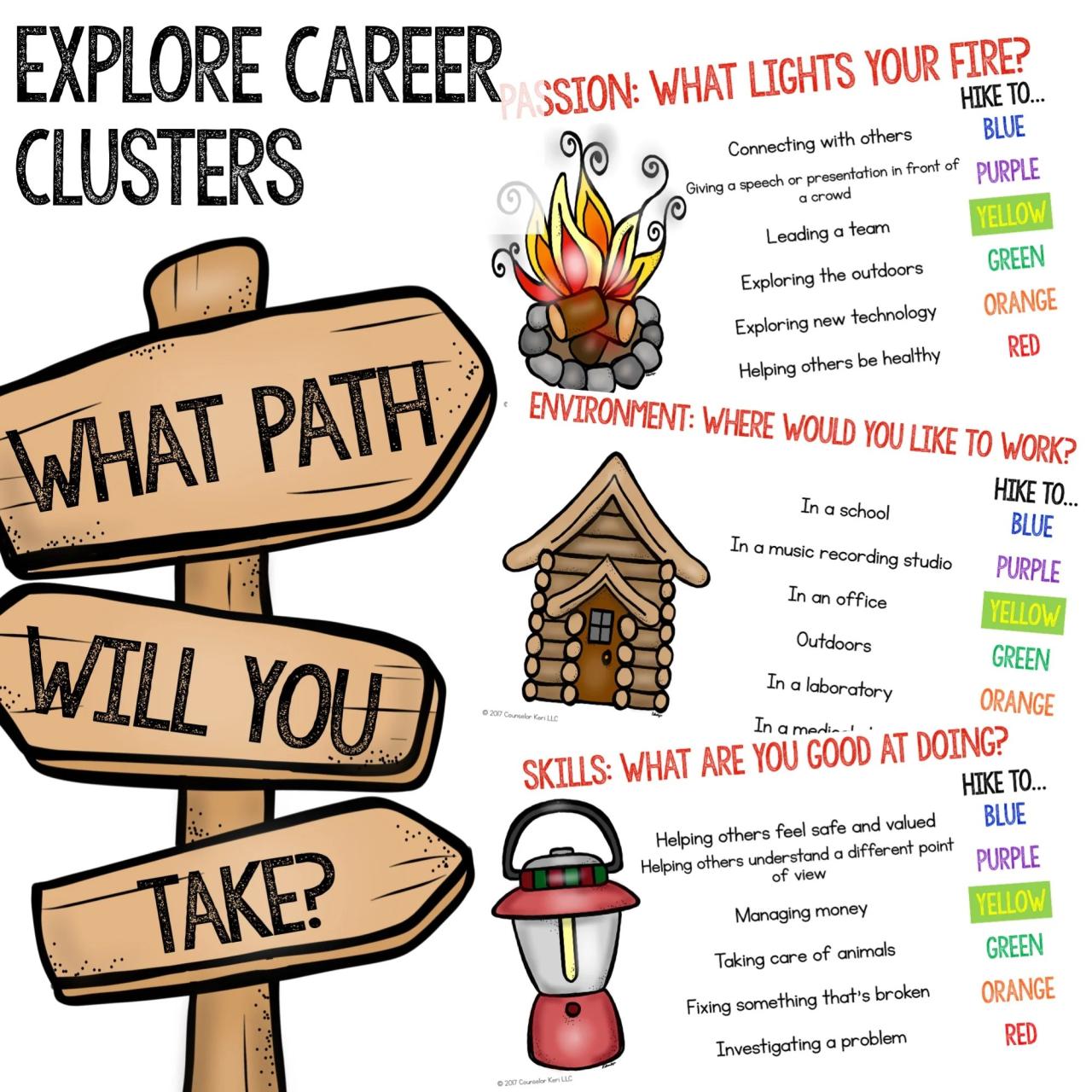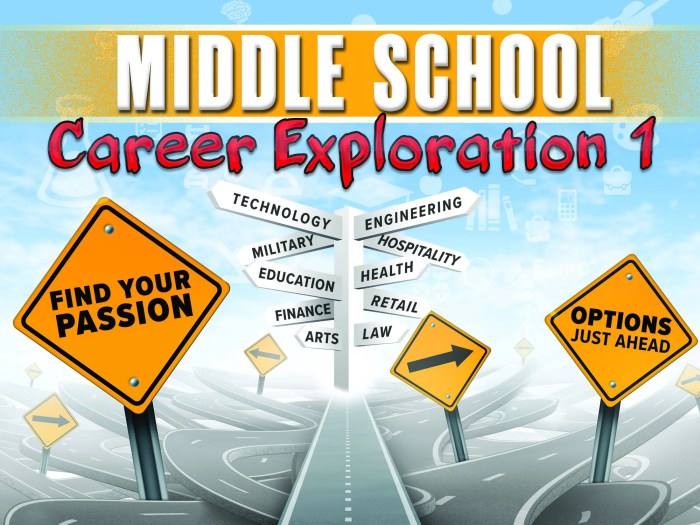
Embark on a journey of self-discovery and professional growth with the wealth of educational resources available for career exploration. From engineering education to online platforms and innovative technologies, the possibilities are endless for those seeking to carve their path in the professional world.
Let’s delve deeper into the realm of educational resources for career exploration and unlock the doors to a brighter future filled with purpose and fulfillment.
Engineering Education

Engineering education plays a crucial role in career exploration as it equips individuals with the necessary skills, knowledge, and tools to excel in various engineering disciplines. Through engineering education, individuals can discover their passion and interest in specific areas, paving the way for a fulfilling career path.
Examples of Engineering Disciplines
Engineering offers a wide range of disciplines, each providing unique career opportunities:
- Mechanical Engineering: Focuses on designing, analyzing, and manufacturing mechanical systems.
- Civil Engineering: Involves designing, constructing, and maintaining infrastructure projects like buildings, roads, and bridges.
- Electrical Engineering: Deals with the study and application of electricity, electronics, and electromagnetism.
- Computer Engineering: Combines principles of electrical engineering and computer science to develop hardware and software systems.
- Biomedical Engineering: Integrates engineering principles with medical and biological sciences to design solutions for healthcare.
Skills and Knowledge Gained
Engineering education provides individuals with a solid foundation in various skills and knowledge areas:
- Problem-solving: Engineers learn to analyze complex problems and develop innovative solutions.
- Critical thinking: They develop the ability to evaluate information and make informed decisions.
- Technical expertise: Acquire specialized knowledge in their chosen engineering field.
- Communication skills: Learn to effectively communicate ideas and collaborate with team members.
- Project management: Gain experience in planning, organizing, and executing engineering projects efficiently.
Educational Resources

In the journey of career exploration, having access to various educational resources can greatly aid in making informed decisions about one’s future path.
Types of Educational Resources
- Online Platforms: Websites like LinkedIn, Glassdoor, and Indeed provide valuable insights into different industries, job roles, and required skills.
- Books: Career exploration books like “What Color is Your Parachute?” or “The Pathfinder” offer guidance on finding the right career fit.
- Workshops: Attending career workshops or seminars can provide hands-on experience and networking opportunities with professionals in various fields.
- Courses: Online courses or certifications in platforms like Coursera or Udemy can help develop new skills and explore different career paths.
Comparison of Resources
- Online Platforms: Offer up-to-date information and networking opportunities, but may lack personalized guidance.
- Books: Provide in-depth knowledge and insights, but might not be as interactive as other resources.
- Workshops: Offer hands-on experience and networking, but may be limited in availability and topics covered.
- Courses: Allow for skill development and exploration, but require time and commitment to complete.
Benefits of Educational Resources
Educational resources play a crucial role in helping individuals make informed career decisions by providing valuable information, guidance, and opportunities for skill development. By exploring a variety of resources, individuals can gain a better understanding of their interests, strengths, and potential career paths, ultimately leading to a more fulfilling and successful career journey.
Online Education
In today’s digital age, online education plays a crucial role in providing accessible career exploration resources to individuals worldwide. With just a click of a button, individuals can access a wealth of information, courses, and resources to help them explore different career paths and make informed decisions about their future.
Benefits of Online Courses for Career Exploration
Online courses offer numerous benefits for individuals exploring different career paths. These include:
- Flexibility: Online courses allow individuals to learn at their own pace and schedule, making it easier to balance work, family, and education.
- Accessibility: Online platforms make it possible for individuals from all walks of life to access high-quality education and resources, regardless of their location or background.
- Cost-effective: Online courses are often more affordable than traditional education, making it accessible to a wider range of individuals.
- Specialized Content: Many online platforms offer specialized courses tailored to specific career paths, providing in-depth knowledge and skills relevant to a particular industry.
Examples of Online Platforms Offering Specialized Courses
There are numerous online platforms that offer specialized courses for career development, such as:
- Coursera: Coursera partners with universities and organizations to offer a wide range of courses in various fields, including business, technology, and healthcare.
- Udemy: Udemy is a platform where experts in different fields create courses on topics ranging from programming and design to personal development and entrepreneurship.
- LinkedIn Learning: LinkedIn Learning provides courses on professional skills, leadership, and technology, helping individuals enhance their skills and advance their careers.
Educator Development
In the realm of career exploration programs, continuous educator development plays a vital role in ensuring that students receive high-quality guidance and support as they navigate their career paths. Educators must stay updated on current trends in various industries to provide relevant and valuable insights to their students.
Importance of Continuous Educator Development
Educator development is crucial as it allows teachers to enhance their knowledge and skills, keeping them abreast of the latest advancements in different fields. By continuously learning and growing, educators can offer students up-to-date information and guidance, preparing them for the ever-evolving job market.
- Attending workshops, seminars, and conferences related to career exploration and industry trends can help educators stay informed and connected.
- Engaging in professional development opportunities such as online courses or certifications can broaden an educator’s understanding of various industries.
- Building a strong network with professionals in different sectors can provide valuable insights and perspectives that can be shared with students.
Continuous educator development is not just about acquiring knowledge; it’s about fostering a mindset of growth and adaptability to better serve students in their career exploration journey.
Positive Impact on Career Guidance
When educators prioritize their own development, they are better equipped to guide students effectively in exploring different career paths. Their enhanced knowledge and skills translate into improved career guidance, helping students make informed decisions about their futures.
- Updated educators can provide relevant information about emerging industries, job trends, and skill requirements, enabling students to align their interests and goals with market demands.
- Improved educator competencies lead to more personalized guidance and support for students, enhancing their overall career exploration experience.
- Educators who invest in their development demonstrate a commitment to lifelong learning, setting a positive example for students and inspiring them to pursue continuous growth in their own careers.
Educational Technology
Technology has greatly impacted career exploration for students by providing innovative tools and resources to help them make informed decisions about their future. Virtual reality (VR) and artificial intelligence (AI) are two cutting-edge technologies that are revolutionizing career guidance by offering immersive experiences and personalized recommendations based on individual strengths and interests.
Virtual Reality (VR) in Career Exploration
- VR allows students to explore different career paths through virtual simulations, giving them a realistic preview of what a particular job entails.
- By experiencing various professions in a virtual environment, students can gain valuable insights and make more informed decisions about their career choices.
- VR also helps students develop important skills such as problem-solving, critical thinking, and decision-making in a hands-on and interactive way.
Artificial Intelligence (AI) in Career Guidance
- AI tools analyze data from students’ academic performance, interests, and aptitudes to provide personalized career recommendations and guidance.
- Through machine learning algorithms, AI can match students with potential career options that align with their strengths and preferences.
- AI-powered platforms offer real-time updates on labor market trends, job opportunities, and skill requirements, helping students stay informed about the evolving job market.
Innovative Educational Technologies for Career Exploration
- Online career assessment tools like CareerExplorer and Sokanu use AI algorithms to provide personalized career recommendations based on individual assessments.
- Career exploration platforms such as Roadtrip Nation and Virtual Job Shadow offer virtual job shadowing experiences and interviews with professionals in various fields.
- Interactive career exploration games like My Next Move and Virtual Reality Career Labs engage students in exploring different career paths in a fun and interactive way.
Wrap-Up
As we conclude this enlightening discussion on educational resources for career exploration, remember that knowledge is power, and with the right tools at your disposal, you can navigate the complexities of the professional landscape with confidence and clarity. Embrace the journey ahead and let these resources be your guiding light towards a successful and fulfilling career.







